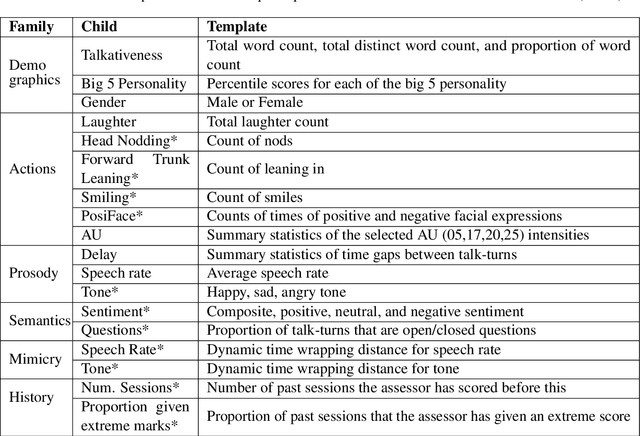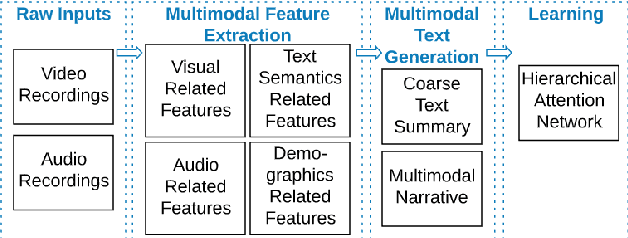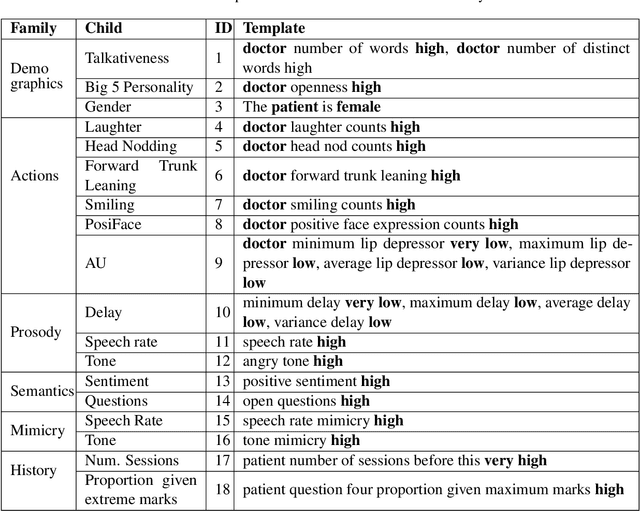Rafael A. Calvo
AI-enhanced conversational agents for personalized asthma support Factors for engagement, value and efficacy
Jul 22, 2025Abstract:Asthma-related deaths in the UK are the highest in Europe, and only 30% of patients access basic care. There is a need for alternative approaches to reaching people with asthma in order to provide health education, self-management support and bridges to care. Automated conversational agents (specifically, mobile chatbots) present opportunities for providing alternative and individually tailored access to health education, self-management support and risk self-assessment. But would patients engage with a chatbot, and what factors influence engagement? We present results from a patient survey (N=1257) devised by a team of asthma clinicians, patients, and technology developers, conducted to identify optimal factors for efficacy, value and engagement for a chatbot. Results indicate that most adults with asthma (53%) are interested in using a chatbot and the patients most likely to do so are those who believe their asthma is more serious and who are less confident about self-management. Results also indicate enthusiasm for 24/7 access, personalisation, and for WhatsApp as the preferred access method (compared to app, voice assistant, SMS or website). Obstacles to uptake include security/privacy concerns and skepticism of technological capabilities. We present detailed findings and consolidate these into 7 recommendations for developers for optimising efficacy of chatbot-based health support.
Towards culturally-appropriate conversational AI for health in the majority world: An exploratory study with citizens and professionals in Latin America
Jul 02, 2025Abstract:There is justifiable interest in leveraging conversational AI (CAI) for health across the majority world, but to be effective, CAI must respond appropriately within culturally and linguistically diverse contexts. Therefore, we need ways to address the fact that current LLMs exclude many lived experiences globally. Various advances are underway which focus on top-down approaches and increasing training data. In this paper, we aim to complement these with a bottom-up locally-grounded approach based on qualitative data collected during participatory workshops in Latin America. Our goal is to construct a rich and human-centred understanding of: a) potential areas of cultural misalignment in digital health; b) regional perspectives on chatbots for health and c)strategies for creating culturally-appropriate CAI; with a focus on the understudied Latin American context. Our findings show that academic boundaries on notions of culture lose meaning at the ground level and technologies will need to engage with a broader framework; one that encapsulates the way economics, politics, geography and local logistics are entangled in cultural experience. To this end, we introduce a framework for 'Pluriversal Conversational AI for Health' which allows for the possibility that more relationality and tolerance, rather than just more data, may be called for.
The Value-Sensitive Conversational Agent Co-Design Framework
Oct 18, 2023



Abstract:Conversational agents (CAs) are gaining traction in both industry and academia, especially with the advent of generative AI and large language models. As these agents are used more broadly by members of the general public and take on a number of critical use cases and social roles, it becomes important to consider the values embedded in these systems. This consideration includes answering questions such as 'whose values get embedded in these agents?' and 'how do those values manifest in the agents being designed?' Accordingly, the aim of this paper is to present the Value-Sensitive Conversational Agent (VSCA) Framework for enabling the collaborative design (co-design) of value-sensitive CAs with relevant stakeholders. Firstly, requirements for co-designing value-sensitive CAs which were identified in previous works are summarised here. Secondly, the practical framework is presented and discussed, including its operationalisation into a design toolkit. The framework facilitates the co-design of three artefacts that elicit stakeholder values and have a technical utility to CA teams to guide CA implementation, enabling the creation of value-embodied CA prototypes. Finally, an evaluation protocol for the framework is proposed where the effects of the framework and toolkit are explored in a design workshop setting to evaluate both the process followed and the outcomes produced.
MONAH: Multi-Modal Narratives for Humans to analyze conversations
Jan 20, 2021



Abstract:In conversational analyses, humans manually weave multimodal information into the transcripts, which is significantly time-consuming. We introduce a system that automatically expands the verbatim transcripts of video-recorded conversations using multimodal data streams. This system uses a set of preprocessing rules to weave multimodal annotations into the verbatim transcripts and promote interpretability. Our feature engineering contributions are two-fold: firstly, we identify the range of multimodal features relevant to detect rapport-building; secondly, we expand the range of multimodal annotations and show that the expansion leads to statistically significant improvements in detecting rapport-building.
 Add to Chrome
Add to Chrome Add to Firefox
Add to Firefox Add to Edge
Add to Edge